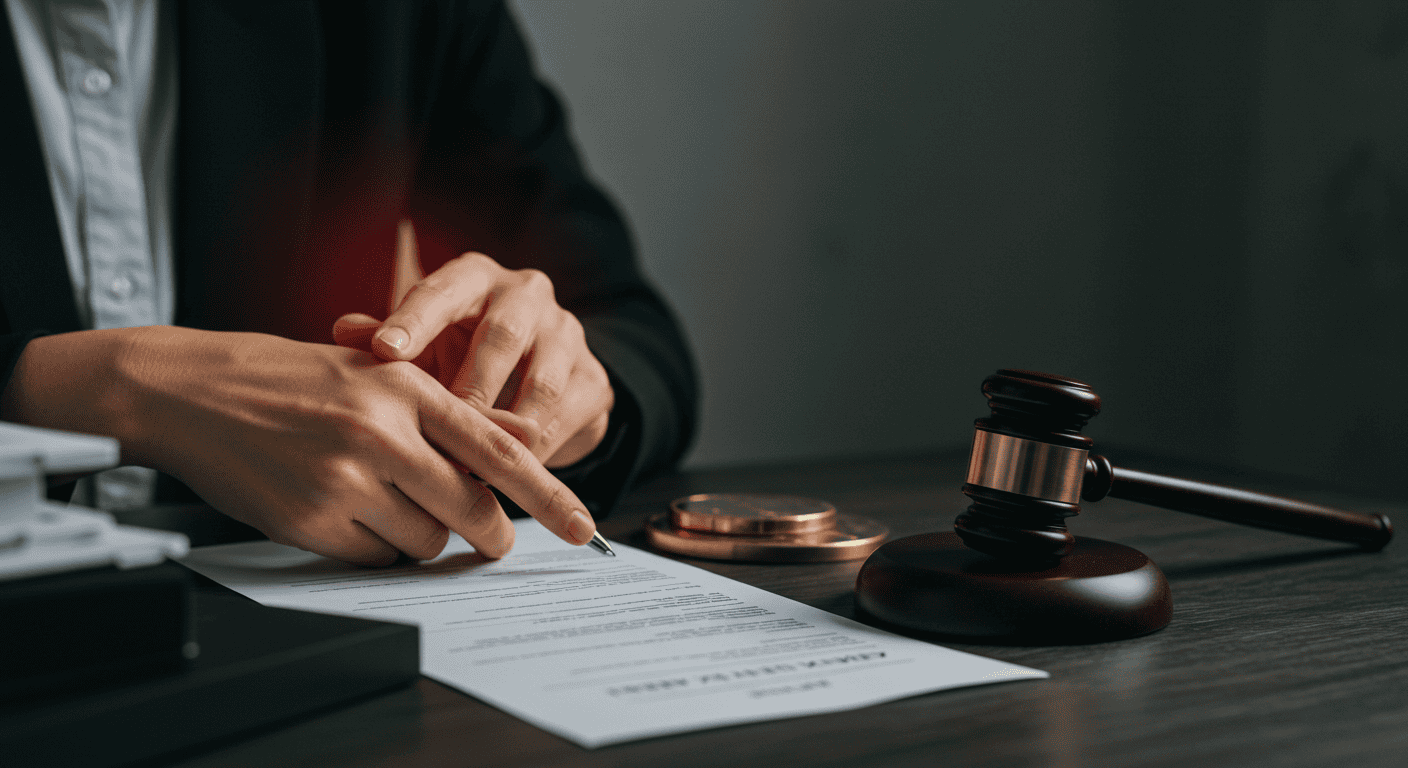Key Takeaways:
- Having a pre-existing condition doesn’t automatically disqualify you from receiving compensation in a personal injury case.
- It can, however, complicate matters and make it more challenging to prove the extent to which your injuries were caused by the accident.
- Clear medical documentation and expert testimony are crucial for establishing the impact of the accident on your pre-existing condition.
- Working with an experienced personal injury attorney is essential for navigating these complexities and maximizing your chances of a successful outcome.
- Open communication with your attorney about your medical history is vital for building a strong case.
If you have been injured by someone else’s negligence in South Dakota, you have a right to seek compensation for your injuries. Personal injury cases can be complicated if an injury aggravates a pre-existing condition, such as a back or neck problem, but you can still recover damages if you have a good lawyer on your side.
Alvine Law Firm includes a dedicated team of personal injury lawyers in Sioux Falls, SD, who will fight tirelessly for your rights. We adopt a compassionate approach to every case, ensuring that we provide each client with the support they need to aggressively fight for maximum benefits in their case.
In this guide, the team explores how pre-existing conditions can affect personal injury cases in South Dakota, and ways you can build a strong case.
How Pre-existing Conditions Affect Personal Injury Claims
Imagine a driver with a bad back gets into a car accident. The accident aggravates their condition, leading to immense pain, mobility challenges and the need for physical therapy. They want to hold the other driver accountable for their injury and its related expenses, but they are worried they won’t be able to prove that the car accident is the true cause of their current level of impairment.
Pre-existing conditions like back and neck problems can make it harder for you to prove an injury was really as severe as you claim. The burden of proof lies on the person filing the case to demonstrate that the injury was ultimately caused by someone else’s negligence and left damage that would not have occurred otherwise.
While pre-existing conditions can make it more challenging to prove causation, you can argue the point of aggravation or exacerbation. In personal injury law, aggravation occurs when an injury permanently worsens a pre-existing condition.
Exacerbation, on the other hand, refers to temporary worsening of a pre-existing condition from a new injury. Both aggravation and exacerbation are justifiable reasons to file a personal injury claim in South Dakota.
Your lawyer can also argue the Eggshell Skull Rule, in which the defendant in a personal injury case must be held fully accountable for the damages they caused, even if the plaintiff had a pre-existing condition.
The Eggshell Skull Rule makes it impossible for someone to skirt responsibility by claiming the victim was predisposed to an injury, thereby rendering the defendant less accountable for their injury.
Instead, this rule protects victims of personal injury cases by asserting they deserve full compensation for an injury, even if they had a pre-existing condition that made them more likely to get hurt.
Proving Your Case
If you are involved in a personal injury case, then you have to demonstrate to the court that your injury was substantial and justifies the amount of money you are seeking. You can pursue financial restitution for both economic and non-economic damages.
Non-economic damages include pain and suffering, mental anguish, and loss of enjoyment in life. There is a $500,000 cap on non-economic damages in South Dakota (Codified Law 23-3-11), but there is no limit on how much you can recover in economic damages.
Our lawyers have helped recover millions of dollars in personal injury lawsuits. Please contact us today to schedule a free consultation.
There are several types of evidence that you can submit to support your personal injury claim:
Medical Records
Doctor’s notes, emergency discharge summaries, imaging scans, physical therapy reports, and other medical documentation can help illustrate the negative impact that your injury caused to your pre-existing condition.
For example, an MRI may reveal that an accident aggravated a back problem or that a slip-and-fall injury exacerbated a bad knee. You can also request your doctor or physical therapist to provide a written statement reporting that your condition has worsened due to the injury.
Expert Testimonies
Medical experts can help establish a clear relationship between the accident and your injury. This can make it easier for you to support your claim in court.
Documentation of Damages
It is important to keep a running log of all the damages your injury has caused. This can include medical bills, lost wages, and eyewitness statements from family and friends. You want to illustrate not only the financial impact but the effect your injury has had on your quality of life.
Dealing With Insurance Companies
Insurance companies can deny compensation for individuals who have pre-existing conditions, and they may argue that your condition is the cause of your symptoms, not the accident.
Having a lawyer contact insurance companies on your behalf can lead to more favorable outcomes. Lawyers know what rights insurance companies have, as well as when they are crossing the line or denying coverage without due cause.
Submitting as much medical documentation as possible will help strengthen your claim. Be cautious when communicating with insurance adjusters, as they may lead you into conversations that ultimately minimize your payout.
Instead, work with a personal injury lawyer who can help you recover the maximum benefits you deserve.
Choosing the Right Attorney
When looking for a lawyer to take on your case, choose a law firm that has a proven track record successfully winning personal injury cases. Ask the lawyer what types of cases they have handled with pre-existing conditions and the outcome of those cases.
During a consultation, you should discuss how the attorney would approach your case and what role they would play in gathering evidence, negotiating with insurance companies, and representing you in court if necessary.
Conclusion
Pre-existing conditions can complicate personal injury cases, but they do not automatically bar you from recovering damages. Using the eggshell skull rule, or thin skull rule, you can hold the responsible party accountable for your injury and its negative impact on your life.
Working with a skilled personal injury lawyer will help you build a strong case and minimize stress throughout the legal process.
The team at Alvine Law Firm has years of experience representing a broad range of clients in personal injury cases. We have successfully recovered millions of dollars for our clients, and we would love to help you.
Please call 605-275-0808 or send us a message to request your free initial consultation with a personal injury attorney in Sioux Falls, SD.
Source

